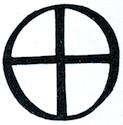NEW DAWN MAGAZINE
Review by John Morgan
Aki Cederberg’s Journeys in the Kali Yuga is a unique addition to a very long and venerable tradition of travel writing by Westerners who have spent time in the East. Such accounts tend to either idealize it as a wellspring of religious knowledge and ascetic piety, or else exoticize it as something strange and forbidding, usually accompanied by a hefty dose of eurocentrism. Anyone who has actually been to India, which is where most of the experiences recounted in the book took place, knows that you can find both of these aspects if you look, but they are incomplete; the reality is much, much more complex. Cederberg avoids both these pitfalls and provides an extremely honest, complete, and moving account of a Westerner on a personal quest for the divine.
It is in one way a travel book, but the travel it describes is as much spiritual as it is geographical – detailing experiences the author had in India, Nepal, and Europe as he attempts to reconnect with what he describes as the primordial tradition behind all religions by seeking out holy men, and it is refreshingly free of New Age nonsense. And it is the only book by an outsider about India of which I am aware in which its author attempts to meet the land on its own terms, but at the same time is looking for a way to reconnect with his own, native traditions and identity as a European (Cederberg is Finnish), which were lost in our peoples’ rush to embrace modernity, as much as he is looking to learn about Indian religion. Furthermore, the author’s experiences were recent, within the past decade, and as such it offers a portrait of the new landscape of twenty-first century India: one where you can drink cocktails on the beach and dine at Western restaurants, where terrorist attacks are commonplace, where spiritual masters carry mobile phones, and where some of the latter are originally from the West themselves.
I felt a great deal of kinship with the author as I read given that I myself spent nearly five years in India, at the very same time that Cederberg was conducting his explorations – in fact we visited some of the same places, even though we didn’t know each other – and I was on the same quest, attempting to reconnect with the gods in order to foment a private rebellion against the modern world. We ended up going along different pathways up the mountain, however. He embraced the tradition of the Shaivite Naga sadhus of the Left-Hand Path, while I practiced the very Right-Handed Gaudiya Vaishnava tradition of Krishna with ISKCON (the “Hare Krishnas”).
But as the great philosopher René Guénon once said, the particular religion one practices is largely immaterial; it is the conversion from the modern worldview to that of metaphysical Tradition that truly matters. Both of us went eastwards in search of Tradition. And I can confirm that Aki’s experiences, both with the spiritual and material sides of India, largely dovetails with my own. The India he describes is just as I knew it. He very well details the difficulty a Westerner encounters in looking for God in a place which offers so many challenges to a foreigner – not just culturally and linguistically, but physically; discomfort is the typical state of being. You sometimes find yourself wondering how you are supposed to find God in a country that in many places resembles, at its worst, a gigantic trash heap inhabited by beggars and scam artists. As Cederberg himself notes, the degenerative effects of modernity are just as active in India as anywhere else, even if they are moving more slowly. India is not an easy place to live, which is perhaps a sure sign that it is a place for what the Indians call tapasya – challenges of austerity that one willingly undertakes in order to grow closer to the divine. To see the gods in India requires a great deal of patience, humility, and open-mindedness – but it can be done.
Cederberg does not shy away from the more unsavory aspects of India (but without any hint of Western pretension, it should be noted), but he also depicts the great rewards to be reaped by an encounter with Santana Dharma, which can do so much to take a Westerner out of himself and his illusions – a process that he is poetically gifted at describing. He relates his experiences at the Kumbh Mela festival in Haridwar, and at Shivaratri in Khajuraho, and at rituals held in Europe, among others, and while these are fascinating and informative, the most interesting parts of the book are Cederberg’s descriptions of what was happening within him as he grew and discovered that truth isn’t to be found out in the world, in some exotic place, but within. (Of course, he had to go out there to realize it.)
Ultimately, just as I did myself, Cederberg came to the conclusion that he could never truly know the gods of India, being the products of a culture and a tradition that are not his own – not rejecting them, but seeing them as guides on a journey back toward Scandinavia and his ancestral roots in the Norse pantheon, specifically through the god Freya. The last chapter of the book describes his religious homecoming at the ancient sacred sites in Lejre, Denmark and Gamla Uppsala in Sweden. And for a Westerner, this is perhaps the greatest lesson one can receive from India: From their brightly living gods, we can perhaps hear the whisperings of our own deities, hidden behind the veil of modernity, but undying, calling to us.
Journeys in the Kali Yuga is recommended for anyone who wants to know modern India, and still more to benefit from the experiences of a serious seeker on the path to a better understanding of himself and his genuine, rooted identity.

